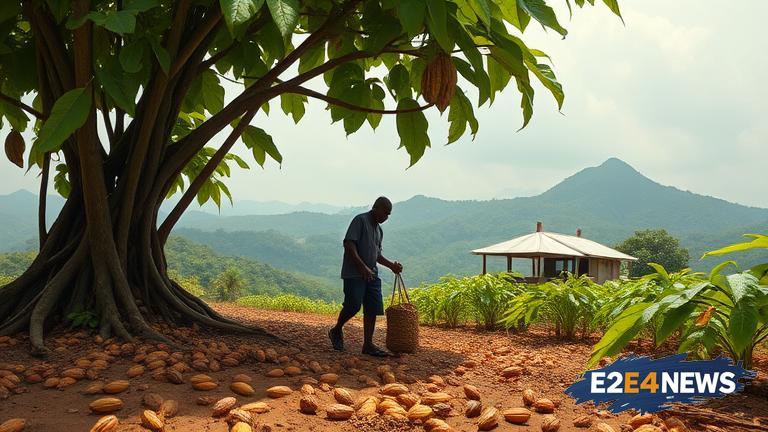Cocoa smuggling has become a major concern for Cote d’Ivoire and Ghana, the world’s largest cocoa producers. The illicit trade has resulted in significant financial losses for both countries, with estimates suggesting that millions of dollars are being lost each year. The smuggling of cocoa beans across borders has been ongoing for years, but the problem has worsened in recent times due to a combination of factors, including corruption, lack of effective border control, and the high demand for cocoa in neighboring countries. The financial losses incurred by Cote d’Ivoire and Ghana as a result of cocoa smuggling are substantial, with some estimates suggesting that the two countries are losing up to $100 million annually. This has significant implications for the economies of both countries, as cocoa is a major export commodity and a key source of revenue. The smuggling of cocoa also has a negative impact on the livelihoods of cocoa farmers, who are already struggling to make a living from their crops. In addition to the financial losses, cocoa smuggling also poses a threat to the quality of cocoa beans, as smuggled beans are often of poor quality and may be contaminated with pesticides or other chemicals. The governments of Cote d’Ivoire and Ghana have been working to combat cocoa smuggling, but their efforts have been hindered by corruption and a lack of resources. To address the problem, the two countries have implemented a number of measures, including the deployment of security personnel to border areas and the introduction of new regulations to track the movement of cocoa beans. However, more needs to be done to effectively combat cocoa smuggling and protect the finances of Cote d’Ivoire and Ghana. The international community also has a role to play in addressing the problem, by providing support and assistance to the two countries to help them strengthen their border controls and combat corruption. The European Union, in particular, has a significant role to play, as it is a major market for cocoa and has a responsibility to ensure that the cocoa it imports is sourced sustainably and responsibly. In recent years, there have been efforts to promote sustainable cocoa production and trade, including the introduction of certification schemes such as Fairtrade and Organic. However, more needs to be done to promote sustainable cocoa production and trade, and to address the root causes of cocoa smuggling. This includes addressing the poverty and inequality that drives many cocoa farmers to engage in smuggling, and providing support and assistance to help them improve their livelihoods. The cocoa industry is a complex and multifaceted sector, and addressing the problem of cocoa smuggling will require a comprehensive and coordinated approach. This includes working with governments, industry stakeholders, and civil society organizations to promote sustainable cocoa production and trade, and to combat corruption and smuggling. In conclusion, the problem of cocoa smuggling is a significant challenge for Cote d’Ivoire and Ghana, and requires a concerted effort to address. The financial losses incurred by the two countries as a result of cocoa smuggling are substantial, and have significant implications for their economies and the livelihoods of cocoa farmers. To combat cocoa smuggling, it is essential to address the root causes of the problem, including poverty and inequality, and to promote sustainable cocoa production and trade. The international community has a role to play in supporting Cote d’Ivoire and Ghana to address the problem, and to promote sustainable cocoa production and trade. By working together, it is possible to combat cocoa smuggling and promote a more sustainable and equitable cocoa industry.
